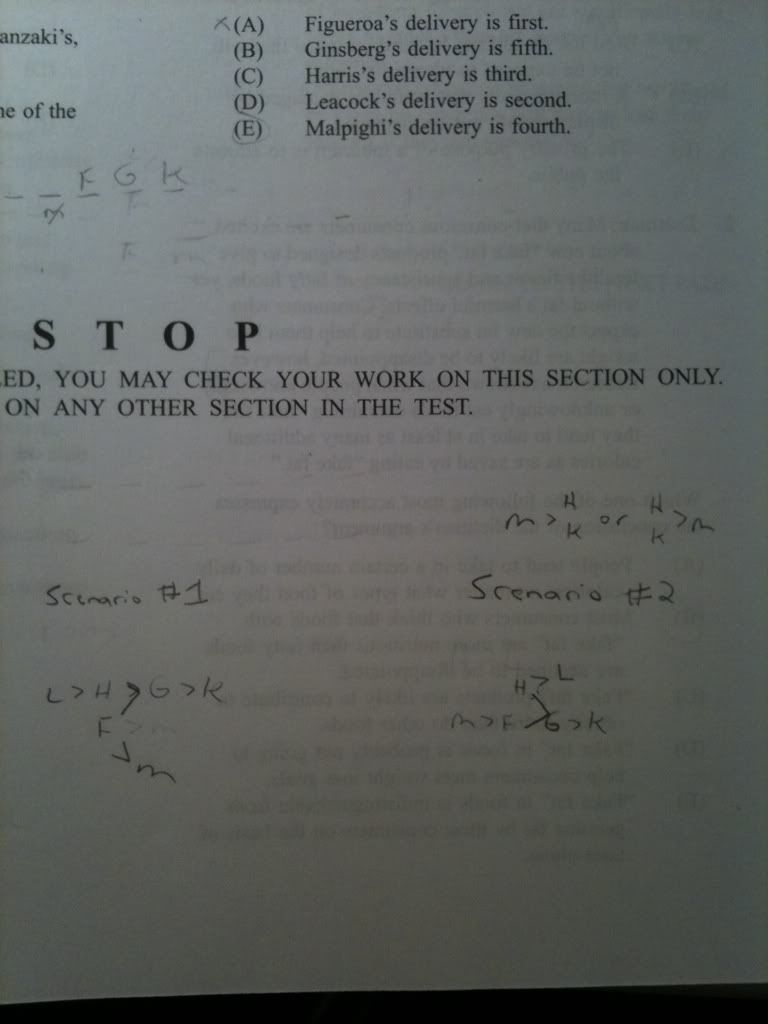A world with F>M ---> L>H
And a world with H>L ---> M>F
The last constraint gave us either M> H & K
or H & K > M because M cannot go between the two variables.
So, I then decided to make my two hypothetical scenarios and I notice that the second scenario seems to be incorrect because the answer to #20 is not B, which I selected without giving it a second thought because of the inference work I did.
Tell me how is the second scenario invalid, or how 20 is not B.
